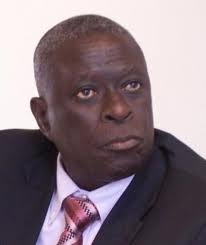Special topics
 Mr Paul Victor Obeng, Senior Presidential Advisor, on Tuesday underscored the need for effective spatial planning for the six coastal districts along the Jubilee Oil Field in the Western Region.
Mr Paul Victor Obeng, Senior Presidential Advisor, on Tuesday underscored the need for effective spatial planning for the six coastal districts along the Jubilee Oil Field in the Western Region.
This, he said, should address the fast destruction of the environment and natural resources to ensure proper management and coastal governance.
He noted that the oil industry had brought in its wake socio-economic challenges to the six frontline districts that needed special attention to relieve them of those challenges.
The six coastal districts are Ahanta West, Shama, Nzema East/West, Jomoro, Elembelle and Sekondi-Takoradi.
Addressing stakeholders at a round table policy dialogue on “A Proposal for a Nested Governance System for Ghana,” he said government had taken note of the rapid development in the coastal districts being shaped by the emergence of the oil and gas industry.
The dialogue was organized by the Integrated Coastal and Fisheries Governance (ICFG) popularly known as “Hen Mpoano,” a Takoradi based non-governmental organisation.
The ICFG aims at managing natural resources and fisheries and to subject its public opinion research document on the Coastal Management of the Western Region for review.
The initiative is a four year programme funded by the USAID with the implementing partners being the Coastal Resource Centre of the University of Rhode Island, USA, Friends of the Nation and other NGOs.
Mr Obeng, who represented Vice President Paa Kwesi Amissah-Arthur, said challenges such as the dramatic decline in fish catch and loss of farm lands for food crop production had rendered fishermen and farmers in the area redundant.
However, he said, some residents were engaging in hard mineral extraction; agriculture and the emerging tourism industry to gain some income.
Mr Obeng commended “Hen Mpoano” for the initiative taken to support the communities to manage the natural resources saying the step was in line with government’s programme.
He expressed government’s interest in the Western Corridor Development Authority but said time was needed to design and assemble the necessary financing for its establishment.
Mr Obeng emphasized government’s commitment to decentralization while maintaining standards of efficiency.
In a welcoming address, Mr Ebenezer Teye Addo, Western Regional Minister, said efforts were underway to find sustainable means for the livelihood of the coastal districts
Mr Kofi Agbogah, Director of Coastal Resource Centre (CRC)-Ghana, called for the need to steer development through a more strengthened, effective and efficient governance system.
This calls for the management of impacts of the new industry while improving food security, specifically restoring depleted fisheries and the well-being of coastal communities, he said.
Ms Cheryl Anderson, Mission Director of the USAID-Ghana, called for the urgent need to inject dynamism into the decentralization process introduced in the early 1980s.
She suggested that civil society, market forces, traditional authority and opinion leaders be meaningfully engaged in governance with clearly defined roles and responsibilities.
Dr Stephen B. Olsen, Director Emeritus of CRC, University of Rhode Island, USA, said the pressure of social and environmental change brought by the oil emergence needed to be addressed despite the difficulties as it also brought about bigger opportunities.
Source: GNA
Get the latest news and updates on Ghana’s oil and gas value chain by following us Reporting Oil and Gas on twitter @oilgasghana and like our facebook page and get at us on Google+. Subscribe to our group to get updates.